in 2011, many folks are intelligent enough to see past that, but many are still not. Unfortunately, too many remain shortsighted, most having already buried their heads in the sand a long time ago.
Cathy Spatz Widom
Cathy Spatz Widom is Professor of Criminal Justice and Psychology at the State University of New York in Albany, and a recognized national expert on the causes and consequences of child abuse and neglect. Her highly respected research includes an important and ongoing longitudinal study of a large sample of children with confirmed severe abuse in childhood. Such prospective studies, in which abused children are followed over time, are particularly valuable in the present context because they can be used to study current memories of people who were definitely abused as children. In the two studies below, one on physical abuse on the other sexual abuse, the findings suggest that for both forms of abuse the accuracy of retrospective reports depends on a complex array of factors, including sample selection and assessment methods, whether the person is male or female, and current mental health status (e.g., suffering from depression or not).
Widom, C. S. & Shepard, R. L. (1996). Accuracy of adult recollections of childhood victimization: Part 1. Childhood physical abuse. Psychological Assessment, 8, 412-421.
Abstract: Using data from a study with prospective-cohorts design in which children who were physically abused, sexually abused, or neglected about 20 years ago were followed up along with a matched control group, accuracy of adult recollections of childhood physical abuse was assessed. Two hour in-person interviews were conducted in young adulthood with 1,196 of the original 1,575 participants. Two measures (including the Conflict Tactics Scale) were used to assess histories of childhood physical abuse. Results indicate good discriminant validity and predictive efficiency of the self-report measures, despite substantial underreporting by physically abused respondents. Tests of construct validity reveal shared method variance, with self-report measures predicting self-reported violence and official reports of physical abuse predicting arrests for violence. Findings are discussed in the context of other research on the accuracy of adult recollections of childhood experiences. Excerpts from the Discussion:Widom, C. S. & Morris, S. (1997). Accuracy of adult recollections of childhood victimization: Part 2. Childhood sexual abuse. Psychological Assessment, 8, 412-421.
". . . In many ways, these findings indicate accuracy in retrospective self-reports and good discriminant validity. Individuals who were physically abused, based on official records, retrospectively reported the highest rates of childhood physical abuse in the sample. On the CTS (Severe Violence and Very Severe Violence subscales) and the SRCAP [Self-Report Measure of Childhood Physical Abuse], physically abused individuals reported significantly higher rates of physical abuse than did individuals who had experienced sexual abuse or neglect in childhood and individuals who were part of a matched control group. The extent of remembering (i.e., the percentage of individuals who had been physically abused who reported having been physically abused on one of the measures used here) is in line with previous research. These results also reveal that the extent of reporting a history of childhood physical abuse varied dramatically by the criterion (or measure) used.
"At the same time, there is a problem in underreporting of physical abuse. A substantial group of individuals who were physically abused do not report having been physically abused in childhood. Of the 110 people in the sample who had documented cases of physical abuse in childhood, 60-62% reported abuse using the CTS-VSV and SRCAP. This means that approximately 40% of individuals with documented histories of physical abuse did not report. Whether these people did not report (as suggested by Della Femina et al., 1990) because of embarrassment, a wish to protect parents, a sense of having deserved the abuse, a conscious wish to forget the past, or lack of confidence in or rapport with the interviewer, we do not know. But these findings suggest that a substantial minority would not be included in retrospective self-report assessments of childhood physical abuse. A more lenient criterion (such as the CTS-Minor Violence subscale) would capture most of the physically abused people (see Table 2); however, this criterion also identifies 92% of the sexual abuse and neglect cases and 86% of the control participants as having been physically abused in childhood. Using the CTS-Minor Violence subscale, the rate of false positives (as presented in Table 5) approaches almost half the sample. These findings illustrate that the rate of false positives is directly related to the measure of childhood physical abuse used. . .
"Henry et al. (1994) concluded that reliance on retrospective reports about psychosocial variables should be treated with caution. They suggested that "the use of retrospective reports should be limited to testing hypotheses about the relative standing of individuals in a distribution and should not be used to test hypotheses that demand precision in estimating event frequencies and event dates" (p. 92). We support their recommendation to use caution against overly simplistic interpretations that take retrospective reports at face value.
"These methodological problems pose significant challenges to researchers in the field. Notwithstanding the real difficulties involved, there is a critical need to develop reliable and valid ways to assess histories of childhood victimization. . . ."
Abstract: Questions have been raised about the accuracy of retrospective self-reported information about childhood sexual abuse. Using data from a prospective-cohorts-design study, a large group of children who were sexually and physically abused or neglected approximately 20 years ago were followed up and compared with a matched control group. Accuracy of adult recollections of childhood sexual abuse was assessed using 4 different measures, completed in the context of a 2-hr in-person interview in young adulthood ( N = 1, 196). Results indicate gender differences in reporting and accuracy, substantial underreporting by sexually abused respondents in general, good discriminant validity and predictive efficiency of self-report measures for women, and some support for the construct validity of the measures. Implications for researchers and practitioners are discussed. Excerpts from the Introduction:========================================================================
". . . [A] significant risk of distortion and loss of information is associated with the recollection of events from a prior time period. If asked to recall childhood events, it is possible that respondents forget or redefine their behaviors in accordance with later life circumstances or their current situation. It is also possible that a person might redefine someone else's behavior in light of current knowledge. Unconscious denial (or repression of childhood traumatic events) may also be at work in preventing the recollection of severe cases of childhood abuse. Furthermore, given society's disapproval of various forms of family violence, a person may be embarrassed to report such experiences or unwilling to reveal such private information in the context of an interview setting. Thus, for a variety of reasons, there may be considerable slippage in accuracy in retrospective reporting. . . .
"Empirical findings suggest that a person's cognitive appraisal of life events strongly influences his or her response (Lazarus & Launier, 1978). The same event may be perceived by different individuals as irrelevant, benign, positive, or threatening and harmful. It is likely that a child's cognitive appraisal of early childhood events will also determine at least in part whether they are experienced as neutral, negative, or harmful. The child's perception might reflect events occurring subsequent to the abuse experience as well as the child's perception of the experience. Theoretically, this is also important because long-term consequences may depend on the person's awareness or memory of the earlier abusive experience or experiences. Considering Lazarus and Folkman's (1984) discussion of the role of cognitive appraisal in mediating one's response to stress, it may be that children who do not define their early childhood experiences as abusive will show better outcomes.
"There may also be gender differences in reporting or willingness to report childhood sexual abuse for a variety of reasons. Female psychiatric patients have been found more likely than male patients to report histories of sexual abuse. . ., female patients have been found more likely than male patients to reveal childhood sexual assault experiences to therapists (Jacobson & Richardson, 1987), and women have reported greater likelihood than men of being a victim of sexual assault (Burnam et al., 1988). Social pressures against reporting early childhood sexual experiences and embarrassment may lead to greater reluctance among men to report, whereas it may be socially more acceptable for women to report such histories. On the other hand, some of the apparent underreporting may be associated with the small number of male victims of sexual abuse in most studies (Finkelhor, 1990).
"One approach to assessing the power or efficiency of retrospective self-report measures is to calculate the relative improvement over chance (RIOC). Loeber and Dishion (1983) devised this index to represent the improvement over chance as a function of the range of its possible predictive efficiency. . . .
"A second approach to establishing the usefulness of retrospective reports of childhood sexual abuse is based on the construct validation process, one of the techniques used to establish the psychometric qualities of assessment instruments. In addition to establishing the validity of retrospective self-report measures using "known groups," construct validity attempts to assess how these self-report measures theoretically relate to other variables or indexes. That is, there are certain theoretical expectations about the way people who have a history of childhood sexual abuse should behave or should manifest certain outcomes. Based on logical relationships, then, tests of construct validity can offer evidence that these measures do or do not measure childhood sexual abuse, without providing definitive proof."
"To validate our retrospective self-report measures of childhood sexual abuse, three outcomes frequently associated with childhood sexual abuse (depression, alcohol problems, and suicide attempts) will be assessed. Ideally, retrospective reports of childhood sexual abuse should relate to subsequent outcomes similar to the way official reports of childhood sexual abuse relate to these outcomes.
Excerpts from the Discussion:
"We examined the accuracy of four retrospective self-report measures of childhood sexual abuse. In general, we found that women and men differ in the extent to which they recall or report having experienced childhood sexual abuse. Approximately 16% of men with documented cases of sexual abuse considered their early childhood experiences sexual abuse, compared with 64% of women with documented cases of sexual abuse. These gender differences may reflect inadequate measurement techniques or an unwillingness on the part of men to disclose this information. They may also reflect differences in the meaning of these behaviors for men and women, particularly viewed in a cultural context. Gender differences in reporting and in perceptions of early childhood experiences may reflect early socialization experiences in which men learn to view these behaviors as nonpredatory and nonabusive. Many of the sexual experiences considered to be sexual abuse (e.g., showing/touching sex organs, kissing in a sexual way) may be seen as developmental rites of passage, part of a learning process. Men reported more sexual experiences in which they touched the other person. Social pressures against reporting certain kinds of early childhood experiences may also lead to greater reluctance among men to report. Future research ought to examine whether the underreporting by men is due to embarrassment or to perceptions about sexual experiences.
"In our examination of the validity of retrospective self-report measures of childhood sexual abuse using known groups, we also found gender differences in the discriminant validity of the four measures. Our results indicate good discriminant validity for the self-report measures used here for women but much less so for men. A higher percentage of women with official histories of childhood sexual abuse recall or report sexual abuse in young adulthood than do women with histories of physical abuse or neglect, who in turn report higher levels than nonabused and nonneglected controls (Table 3). On the other hand, men in our sample with documented cases of sexual abuse do not report higher levels of sexual experiences (any sex before age 12) than do men with documented cases of physical abuse or neglect or control men. Sexually abused men are significantly more likely to consider that they were sexually abused and to report more often having had sex against their will than are controls, but so are physically abused or neglected men. It is noteworthy that more physically abused or neglected men reported having had sex with an older person than did sexually abused men, none of whom reported having had this experience in childhood.
"Overall, we found substantial underreporting of sexual abuse among known victims of childhood sexual abuse. This is particularly impressive because these are court-substantiated (documented) cases of childhood sexual abuse. Much attention has been paid to the lack of recall or failure to report histories of childhood sexual abuse among known victims of abuse. Although this lack of reporting is significant, it may not be surprising when viewed in a somewhat different context. Nonreporting by crime victims in the context of victimization surveys has been studied for a number of years (Garofalo & Hindelang, 1977), and problems with respondent embarrassment about the incident or "protective mechanisms," or simply memory decay or forgetting have been described. . . .
"For women, we found strong relationships between retrospective self-report measures of childhood sexual abuse and the three outcomes examined here: DSM-III-R diagnoses of depression and alcohol abuse/dependence and suicide attempts. We also found that women with documented cases of childhood sexual abuse who were followed up prospectively into young adulthood were at increased risk for having alcohol abuse/dependence diagnosis and for making suicide attempts.
"It was surprising that we did not find that women or men with documented cases of childhood sexual abuse were at increased risk of being diagnosed with depression according to DSM-III-R criteria, despite the widespread belief that childhood sexual abuse leads to depression. We did, however, find a significant relationship between retrospective self-report measures of childhood sexual abuse and depression diagnosis. Thus, this pattern of findings suggests that the relationship between childhood sexual abuse and depression is complicated and may depend on a person's cognitive appraisal of early life events (cf. Lazarus & Folkman, 1984). Individuals who meet the criteria for a DSM-III-R depression diagnosis (current or remitted) are more likely to recall having been sexually abused in childhood than individuals without depression diagnoses, although individuals with documented cases of sexual abuse in childhood who were followed up into young adulthood were not at increased risk of receiving a depression diagnosis. This was true for men as well as women in this sample. . . .
"The underreporting we found means that there is a substantial group of people with documented histories of childhood sexual abuse who do not report these experiences when asked in young adulthood to do so. Whether this is due to loss of memory, denial, or embarrassment is not known. However, there are important implications from these these findings for other researchers and clinicians. For researchers, the underreporting of childhood sexual abuse poses a serious concern for epidemiological research, especially that which involves a large proportion of men. For clinicians, these findings reinforce the need to develop more sensitive techniques to elicit this information from men.
'Gedolim' CLUELESS !!! Moetzes Gedolei Hatora's outlook in 2011 is still: don't report sexual abuse to authorities, try to squash the facts internally via intimidation tactics. SHAMEFUL!
Mayor Bloomberg crowed Monday that city streets have never been safer - day or night - for women, but some skeptical New York ladies suggested he take a walk in their neighborhoods.
At a tour of a Queens school Monday night, the mayor proudly declared: "People don't remember 10 years ago. They've really already forgotten when you couldn't walk the streets."
"Today, a woman could walk in virtually every neighborhood in this city during the day and not look over her shoulder, and most neighborhoods at night," he added.
But Bronx resident Carla Banks, 31, said living on the upper East Side has left the mayor clueless about what women face.
"Bloomberg's trippin'," said Banks, of Kingsbridge Heights. "This isn't the upper East Side. He's definitely out of touch with what women deal with in the Bronx."
Her pal Devon Irving, 29, said he should take a solo stroll down her block. "I know the mayor doesn't have to worry about walking home from the subway, but I sure do," said Irving, of Mount Eden. "If he thinks we don't still have to watch our backs, he's crazy."
Nora Nestor, 32, of Crown Heights, Brooklyn, said she wouldn't change where she lives, but she never lets her guard down.
"I love my neighborhood. I feel safe in it, but I wouldn't walk anywhere in New York without being aware of what's behind my shoulder," she said. "As a woman, you have to be aware of your surroundings."
Bedford-Stuyvesant resident Elizabeth Truemper, 25, said some parts of Brooklyn are more dangerous for women than men.
"There's no way I'd walk from Bed-Stuy to Bushwick, but I have male friends that walk from Bushwick to Bed-Stuy," she said.
The mayor boasted about female safety after Rabbi Yaakov Bender, the dean of Yeshiva Darchei Torah School in Far Rockaway, thanked him and NYPD Commissioner Raymond Kelly for keeping the streets safe.
But at a community meeting the mayor later attended in Far Rockaway, Beverly Champion didn't second the sentiment.
She complained to the mayor about crime in housing developments, saying, "I've lived here all my life, and I've never seen it as worse." Champion said she doesn't feel safe walking around with her purse and laughed when told what the mayor had said earlier about crime.
"He's not telling the truth," she said. "He just takes the reports that they give him, but he doesn't know."
Even women with tony Manhattan zip codes called the mayor out on his comments.
"He's a bit off the mark," said Carson Demmons, 26, of NoHo. "I've lived in neighborhoods where I wouldn't give it a second thought during the day, but it was a whole different story at night. You still need to keep your wits about you."
Bloomberg's boasts did get some support - from women who live in his neighborhood.
"Yes, it has gotten better," said upper East Sider Theresa Ackerly, 43. "This nabe changed a lot. Back in the '80s, there were a lot of gangs. Mayor Bloomberg is doing all right in terms of crime."
Meanwhile, at the community meeting, a crowd of 200 booed the mayor and the Department of Transportation Queens Borough commissioner, Maura McCarthy, when they spoke of planned bike lanes for the Rockaways.
Bloomberg later admitted that the lanes drew strong reactions from supporters and opponents.
"Bicycle lanes are one of the more controversial things, obviously," he said. "Some people love them and some people hate them. ... It's probably true that in many of these cases we could do a better job, and we're going to try to do that."






































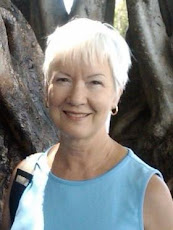

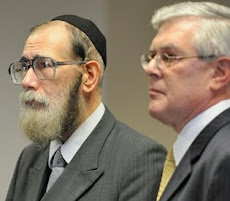

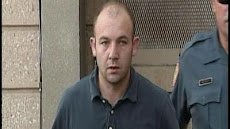









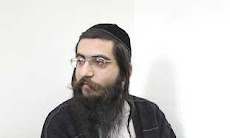





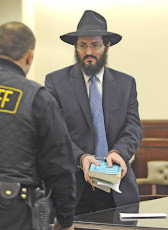



















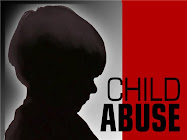













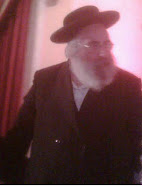
























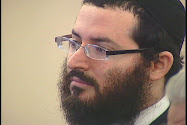
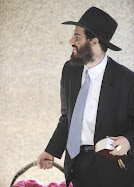
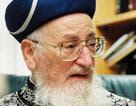









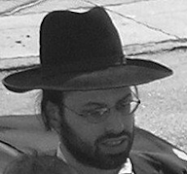

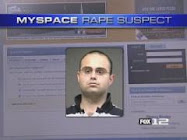









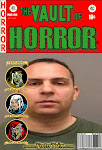











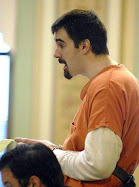


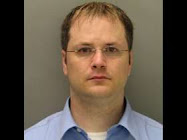


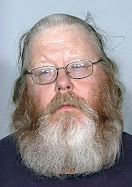

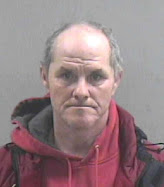
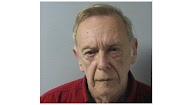
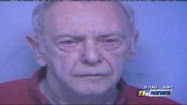













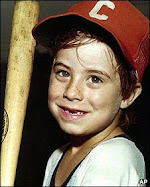



















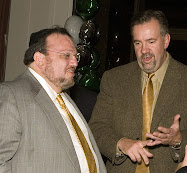
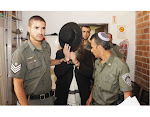































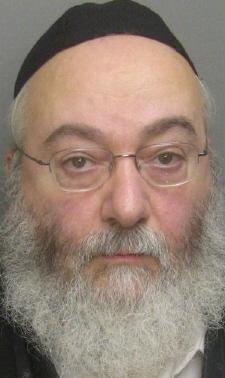






















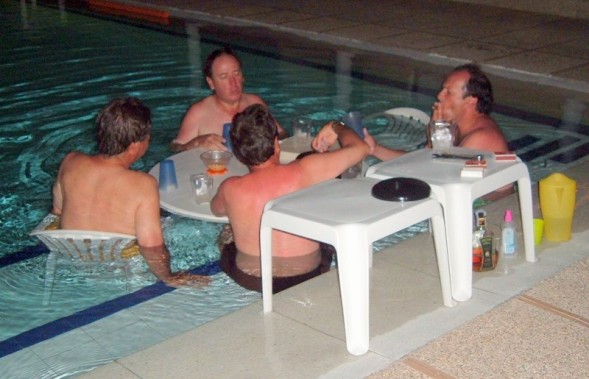

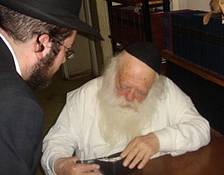

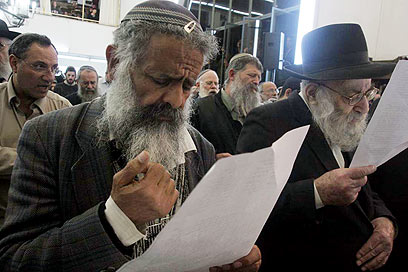
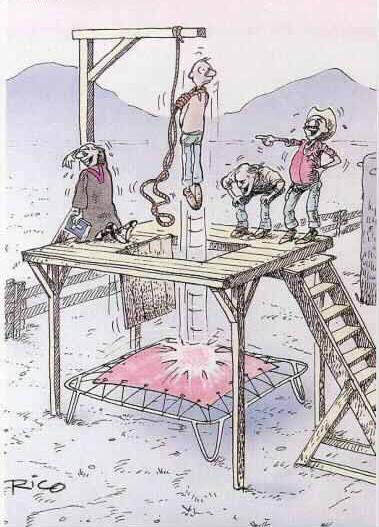



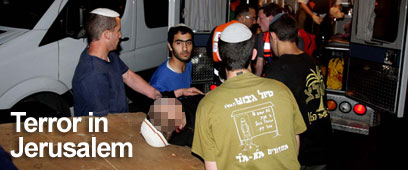

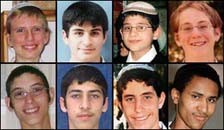
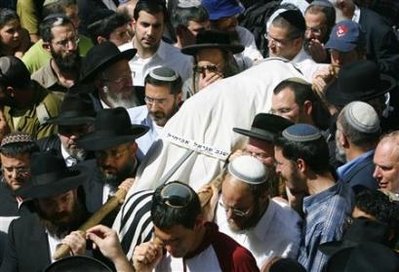
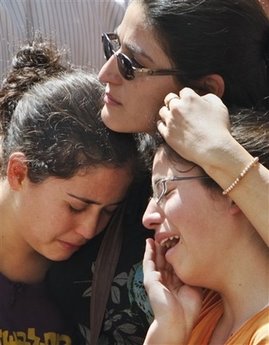



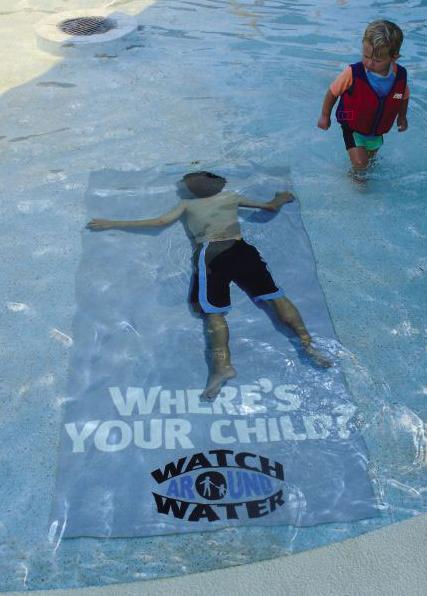









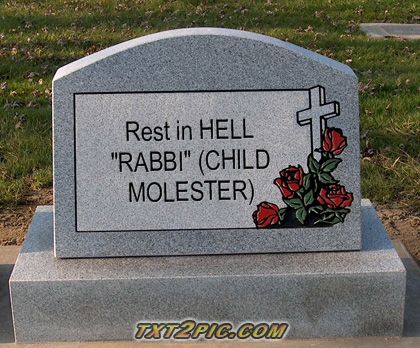
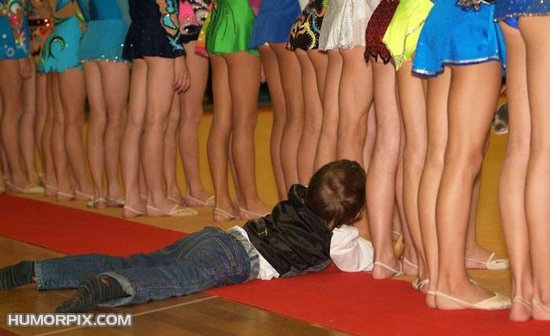







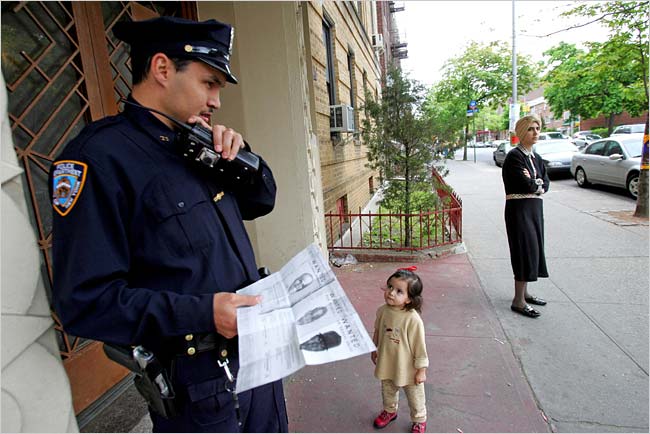

















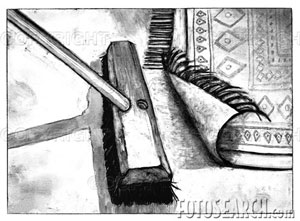
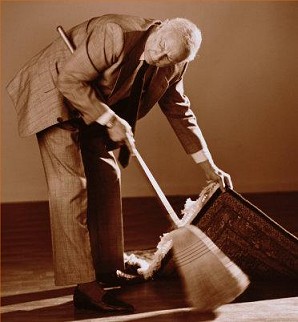


















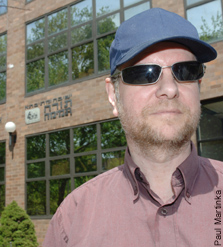










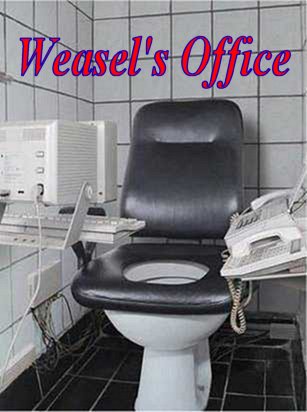






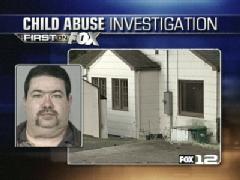


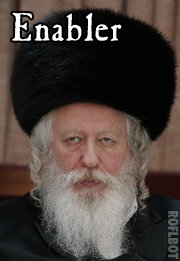




















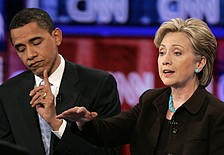
















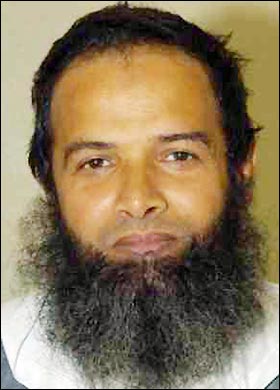


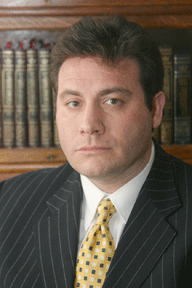

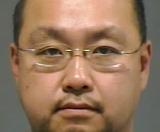
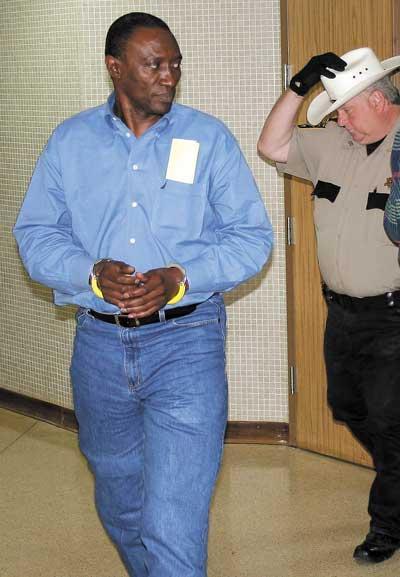

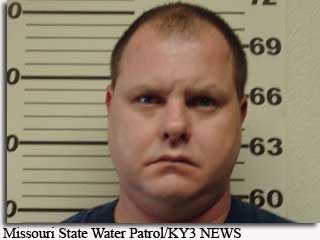



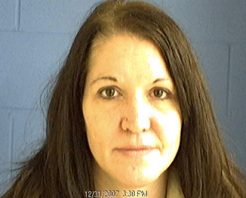


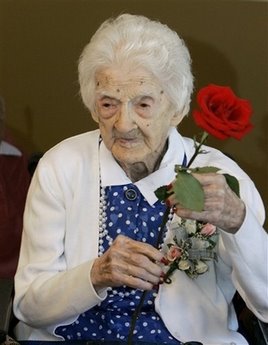

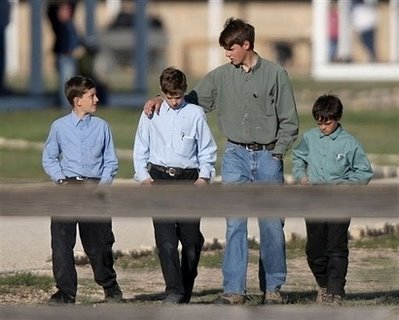



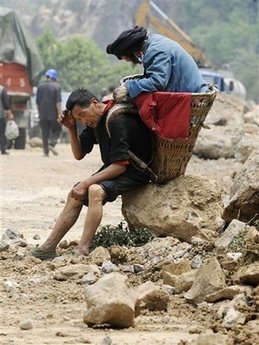



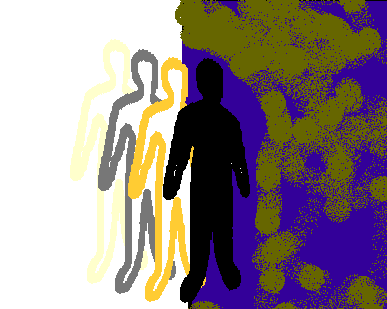

25 comments:
At 81, Albert LeBlanc is too old to be punished for something he did in the 1970's. That's our position.
-----------------------------------
A former Yarmouth priest turned probation officer who took altar boys on hockey trips has been charged with 40 counts of sexual assault on three young people more than 30 years ago.
Albert LeBlanc, now 81, faces the abuse charges after Nova Scotia RCMP received a complaint last April, said RCMP spokeswoman Sgt. Brigdit Leger.
Leger said LeBlanc is one of the oldest alleged perpetrators the Mounties have arrested in connection with a sex assault case.
The charges allege the abuse took place over a 15-year span in the Yarmouth area.
Now retired, LeBlanc was arrested Jan. 6 at his home in Bouctouche, N.B., and was released on a promise to appear in provincial court in Yarmouth on March 15.
The phone at what is believed to be LeBlanc’s home was not answered Monday.
Of the 40 charges, 11 are for alleged indecent assaults on a male and the other 29 are charges of gross indecency, Leger said in an interview.
The force is not specifying how many alleged victims there are for the gross indecency charges, she said.
"We don’t want to disclose any information that could disclose the identity of the victims in this matter."
The charges stem from alleged offences that took place from 1970 to 1985 while LeBlanc resided in Yarmouth County, said the Mounties, who sent out a news release Monday.
John McKiggan, a Halifax lawyer who has represented hundreds of victims of priests in sex abuse cases, said he was aware of the allegations against LeBlanc. But McKiggan would not reveal whether he has been retained by any of the alleged victims in this case.
"I am not at liberty to say," he said Monday from his Halifax office.
Leger, who would not disclose LeBlanc’s background as a priest and probation officer, said she didn’t know if he was in good health, nor would she offer any other information because the case is before the courts.
"As you can appreciate, this investigation was complex, based on the fact this occurred well over 20 years ago," she said. "We interviewed witnesses and victims. Our goal was to gather as much information that we could bring (to) the Crown."
Read More: http://thechronicleherald.ca/Front/1223908.html
We sell our souls to the devil by supporting politicians sponsoring same gender marriage, for the sake of vouchers.
The bill calls for mandatory education to children on acceptance of gay marriage as one of many prospective lifestyles to lead.
You see we are against anything that's against us. For instance, Statute of Limitations extensions - such as the Child's Victim Act Of New York - is dangerous and as such we oppose it.
Yes, we are the Moetzes, and while setting a good example is not our forte, having a huge follow-ship placing unconditional faith in us, nonetheless, is heartwarming.
I refused to appear before Rav Moshe (misarev ldin), and that landed me the Rosh Yeshiva job and a seat on MGH.
*chuckle* Regarding the atrocious leadership (mgh), or lack-thereof, it is like the human drilling a hole on his side and saying why do you care, is isn't affecting the rest of you?
In my days as yob menhael for the elementary, my temper would burst out of control often and in a flash.
Guess who paid the price for it? Yes, the boys. My fists and hands performed their mission, let's just say.
Hey yankel shut up!! Don't drip like a faucet.
Now to these "studies" of physical abuse, sexual abuse, emotional abuse, verbal abuse and any other kind of nonsense abuse coming next - maybe lemoshul, snow abuse? Shtusim!! CHINUCH should not be confused with physical abuse etc., EVEN if the physical or sexual force necessary to teach children good midos seem drastic to those who don't understand my position or of the shulcan aruch.
BOSTON -- A 4-year-old boy New Bedford boy who police say was tortured for days is being treated for injuries at a Boston hospital.
Elvis J. Garcia, 31, was arrested Monday night and accused of attacking the boy with a belt, according to the Boston Herald. State police spokesman David Propcpio said the abuse "committed on this child was monstrous."
Officials said the injuries appeared to be inflicted on the child over the course of several days. It was not clear why the boy was in the custody of Garcia.
Garcia, a man known to the child's mother, was charged with assault and battery with a dangerous weapon resulting in substantial bodily injury and reckless endangerment of a child.
He was scheduled to face charges Tuesday in New Bedford District Court.
The boy's mother was arraigned Monday on charges of reckless endangerment of a child and permitting substantial injury to a child, the Herald reported.
http://www.thebostonchannel.com/news/26697738/detail.html
This parsha is not applicable to the Moetzes, so it seems.
Child molester doctor sacked by AIIMS
The All India Institute of Medical Sciences (AIIMS) has sacked the senior resident doctor accused of sexually abusing an eight-year-old patient in the hospital’s intensive care unit.
Union health minister Ghulam Nabi Azad cleared the doctor’s dismissal on Wednesday evening after a hospital committee, which was probing the charge, submitted its report.
“Taking into consideration the committee’s report, the senior residency of the accused doctor has been terminated with immediate effect. He will no longer be able to treat patients or pursue his course at the hospital,” said Dr YK Gupta, AIIMS spokesperson.
In a written complaint to the hospital administration on January 24, the boy’s parents accused the doctor of trying to have oral sex with their son in the doctor’s duty room on January 23.
The police are still waiting for the report filed by the hospital committee. “The report is important for our investigations. We are also conducting a parallel probe,” said HGS Dhaliwal, DCP (South).
http://www.hindustantimes.com/Child-molester-doctor-sacked-by-AIIMS/H1-Article1-657832.aspx
If only it were so easy. Some people you could never change their mind. Simply put, too many fools will stare truth in the face; refusing to distinguish reality from insanity.
It is no coincidence or fluke that when broaching sensitive topics the big rabbis do what's best for THEM, but certainly not out of their sheer allegiance to the set forth commandments of the Torah.
When will the corruption end?
http://www.csmonitor.com/World/Middle-East/2011/0211/Mubarak-steps-down.-What-comes-next-for-the-Egyptian-revolution
Mubarak steps down. What comes next for the Egyptian revolution?
Mubarak stepped down 18 days after a leaderless revolution emerged in Cairo to press for the end of the president's 30-year reign. Now the matter of leadership becomes much more pressing.
Jerusalem District prosecutors on Thursday said that following an investigation, it has decided to bring former Yeshivat Hakotel head Rabbi Mordechai Elon to trial for sex crimes against two of his underage students during the years 2003 and 2005.
Before filing charges, Elon will be given an opportunity to argue why he should not be charged.
Some people are rotten to the core. They have no conscience and no remorse. Seemingly everyone has a good side, but that is not true.
Nussbaum has abused kids in the past, and these types of people tend to re-offend, so the possibility more victims fell prey to this beastly man is highly probable.
As for Shlomo Mandel actively disgracing the Torah by employing Nussbaum to work with children: there's only one force which will administer the ultimate blow reserved for lowly men; Ribono Shel Olam.-.
Is that mandel I see spacing out or taking a nap?
Why is this little man so disinterested?
Did wachsman inadvertently hit upon a delicate topic of child-abuse that might explain it away?
We believe in employing any abuse technique that works to deter children from acting goyish.
The Chief Rabbi of Haifa Rabbi She’ar Yishuv Cohen was called in on Thursday for a hearing by the Jerusalem District Attorney’s Office, before the probable filing of an indictment against him on charges of bribery and false registration of corporate documents.
Cohen is suspected of involvement in a corruption ring, in which thousands of police, Prisons Service and IDF allegedly received wage increases based on falsified documents that certified them as rabbis.
Charges against Cohen were dropped a year and a half ago, despite the prosecution’s assertion that it had sufficient evidence to indict him, after Cohen said he would remove himself from his post and no longer hold public positions.
“Upon learning that Rabbi She’ar Yishuv Cohen continues to serve as the chief rabbi of the city and continues to serve in public positions despite his commitment not to, the District Attorney’s Office decided to file an indictment,” the Justice Ministry said.
Cohen was first called in for a hearing with the prosecution in 2008, at the height of the investigation into claims that rabbis approved certificates stating that students had attended five years of yeshiva study, when in fact they only spent a few hours a week, during two years, in unrecognized colleges. Those certificates, once approved by the Chief Rabbinate, earned their bearers monthly wage increases of up to NIS 4,000 for nearly half a decade, robbing the state of hundreds of millions of shekels.
According to the Justice Ministry, suspicions against Cohen dealt with a secondary case having to do with goings on that took place at the Ariel Institute, which Cohen directed. The prosecution has filed indictments against several dozen police officers and other security personnel.
A special committee was set up in the IDF to recover the money from the fake rabbis.
Cohen’s lawyer, Yaron Kostelitz, said there are no grounds for a criminal indictment of his client. “It is a shame that the prosecution is once again calling him in for a hearing, after having closed the file over a year ago,” he said.
The flashbacks never go away. When I reluctantly attended yob for schooling, it was pure fear and dread of realizing more physical and sexual-abuse was inevitably about to transpire.
I held it all in until recently when my therapist pulled it out of me. Let me tell you: Nussbaum, the Mandels and a slew of other abusive "rabbis" have hell to pay, and I will never forgive them.
Hi,
Please post how i can contact you - I can't find it anywhere on the blog, I need to get in touch with you about one of the things that was posted - very important!
Thank you.
A Brooklyn, N.Y., rabbi was sentenced to four years in prison Friday after being convicted last year of trying to shake down hedge-fund firm SAC Capital Advisors and its founder, Stephen A. Cohen, for $4 million.
Federal prosecutors in Manhattan had alleged at trial that Rabbi Milton Balkany approached SAC Capital in late 2009 and told the hedge-fund firm's outside lawyer that he would advise an inmate not to talk about possible insider trading if it made a grant of $2 million to a Hebrew day school and loaned $2 million interest-free to another school.
"I'm just hoping and praying that your Honor will take the totality and will downward depart in this situation, so that so many innocent people...should not be negatively effected," Mr. Balkany, 64 years old, said before sentencing.
Mr. Balkany, founder and former dean of Bais Yaakov day school in the Borough Park section of Brooklyn, had faced as much as nine years in prison under federal sentencing guidelines. He was convicted in November of wire fraud, extortion, blackmail and making false statements.
U.S. District Judge Denise Cote ordered that Mr. Balkany be jailed immediately after imposing sentence.
"That was the major disappointment of the day," said Alan Kaufman, Mr. Balkany's lawyer. "We didn't think and don't think he is a flight risk. We thought he should have been allowed to voluntarily surrender."
Mr. Balkany said at the hearing that he intends to appeal his conviction.
Anon,
Kindly contact at:
Matzil_Nefoshos@yahoo.com
Balkany may have broken the law, but it's ludicrous to serve 4 years for a white collar crime, while child molesters' Kolko, Brenner, Weiss (to name a few) all received slaps on the wrist.
Child molester sentenced
Robert Posey sentenced to 35 years
It was a difficult morning in court for the victim and her family. The sentencing for Robert Posey was delayed nearly 30 minutes, and during that time, Posey stared forward blankly in the courtroom.
Once the sentencing was underway, Vigo County Prosecutor Terry Modesitt read two victim impact statements. One was from the parents of the victim, and one from the victim herself. In that note, she said the situation has ruined her life, and she hoped Posey would get what he deseerved.
Posey said he would not speak on his own behalf in court, noting that he was advised not to do so.
After the judge sentenced him to 35-years in prison, he still maintained his innocence.
"I've apologized to the family for having to go through this, but I am innocent. And I'm going to maintain my innocence. Thank you," Posey said while leaving the courtroom.
"It's terrible. It's something she's going to have to deal with and live with for the rest of her life. But yes it is a step. At least it takes away some of the pressure of having another court hearing coming up," Modesitt explained of the victim.
The victim and her family declined to comment after the sentencing, but Modesitt said they are pleased that justice is being served.
The thing that bothers me most about some of the sexual abuse incidents over the years at yeshivos and camps is the fact that nobody had the guts to apologize to the victims. Something like this would have been a step in the right direction. (substitute Archbishop; insert Moetzes)
“As Archbishop of Dublin and as Diarmuid Martin, I offer to each and every survivor my apology, my sorrow, and my shame for what happened to them,’’ he said. “I am aware, however, that no words of apology will ever be sufficient.’’
http://www.boston.com/news/local/massachusetts/articles/2011/02/20/omalley_in_dublin_to_help_offer_lament_for_sex_abuse_victims/
Re: Firefighter Arrested for Child Molestation
A Tallahassee Firefighter is arrested accused of molesting two children.
Posted: 6:53 PM Feb 18, 2011
Reporter: Lanetra Bennett
Email Address: lanetra.bennett@wctv.tv
-------------------------------
I am outraged. I know this family and the church they go to. I am disgusted that people knew about this and didn't report it. So if the mom knew and they were trying to get their "Christian counselors" to help, how many other people knew about this and turned the other cheek? It is the law to report such suspicions. Perhaps there needs to be an investigation to determine how many people knew of the crime and tried to protect the perpetrator instead of helping the girls. In my eyes, the younger girl is the real hero for recognizing the wrong and loving herself enough to put an end to it. I hope she and her sister will be able to get the help they need and have an amazing life. As for the perpetrator and the mom, you will be judged...by the God you worship every Sunday and Wednesday, and by a jury of your peers. Stop making excuses and start loving these children enough to stand up for what is right.
“Just because you lead a charitable institution doesn’t give you a pass to commit extortion and fraud,” Judge Denise Cote said, according to Bloomberg News.
Mr. Balkany was convicted in November of extortion, blackmail, wire fraud and making false statements.
Mr. Balkany, who served as dean of the Bais Yaakov school in Borough Park, was accused of telling SAC that a prisoner to whom he served as a “spiritual adviser” had details about an insider trading scheme at SAC, which is based in Stamford, Conn.
The rabbi threatened an SAC lawyer that he would instruct the inmate to not disclose the insider trading if the hedge fund paid $2 million each to two different religious schools. He also falsely claimed that federal prosecutors were about to seek the prisoner’s cooperation.
The lawyer recorded their conversations and then partook in a sting operation in which he handed over two checks totaling $3.25 million to Mr. Balkany.
Citing his “lifetime of good works” and “generosity of spirit,” Judge Cote gave out a four-year sentence that was less than the proposed sentence under federal guidelines. But she ordered him locked up immediately because she considered him a flight risk.
http://dealbook.nytimes.com/2011/02/18/rabbi-sentenced-in-sac-capital-shakedown-plot/
Post a Comment